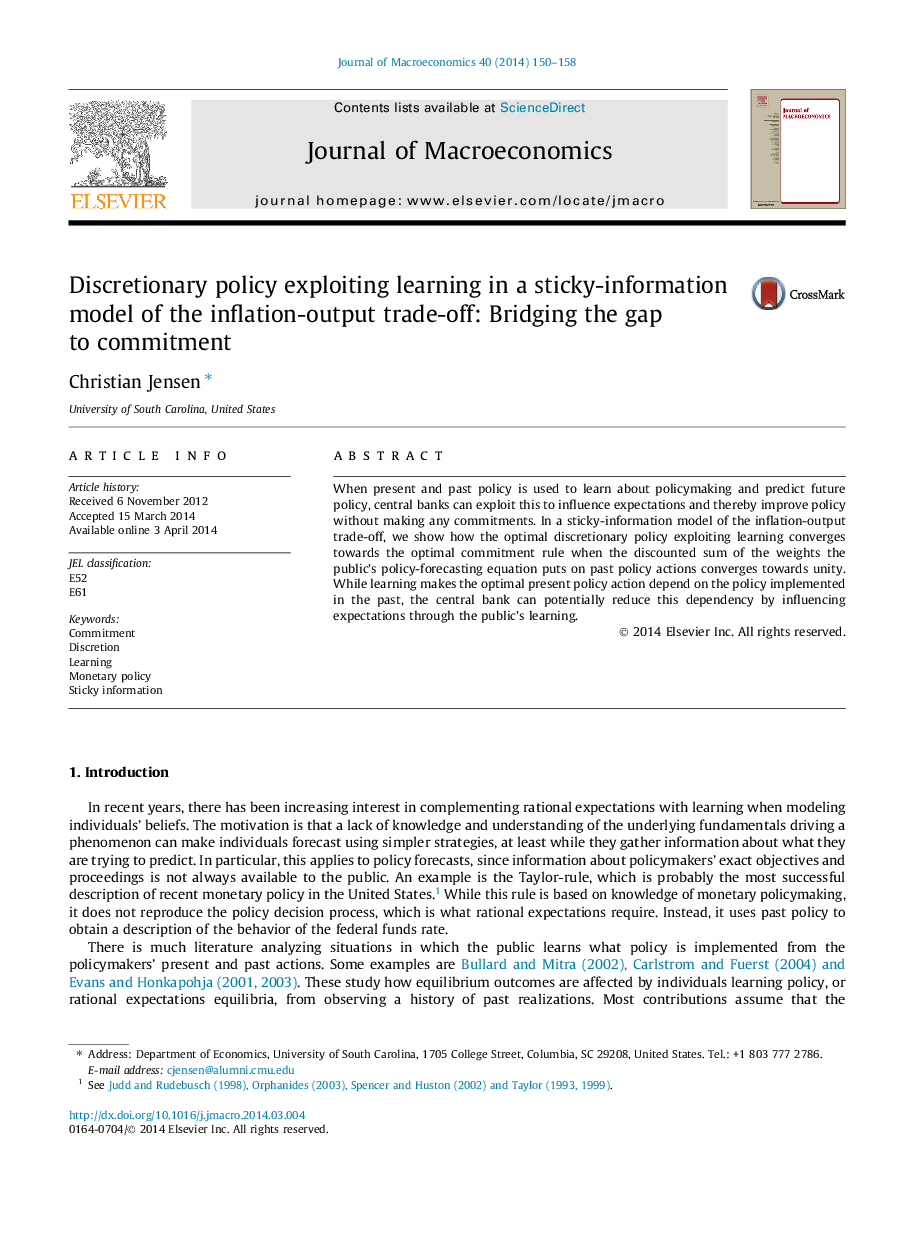| Article ID | Journal | Published Year | Pages | File Type |
|---|---|---|---|---|
| 965384 | Journal of Macroeconomics | 2014 | 9 Pages |
Abstract
When present and past policy is used to learn about policymaking and predict future policy, central banks can exploit this to influence expectations and thereby improve policy without making any commitments. In a sticky-information model of the inflation-output trade-off, we show how the optimal discretionary policy exploiting learning converges towards the optimal commitment rule when the discounted sum of the weights the public's policy-forecasting equation puts on past policy actions converges towards unity. While learning makes the optimal present policy action depend on the policy implemented in the past, the central bank can potentially reduce this dependency by influencing expectations through the public's learning.
Related Topics
Social Sciences and Humanities
Economics, Econometrics and Finance
Economics and Econometrics
Authors
Christian Jensen,
